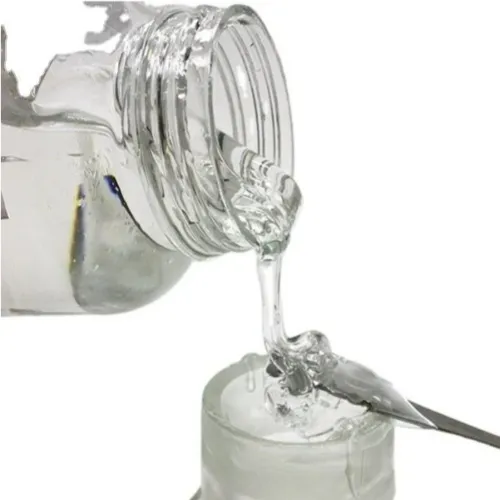Warning: Undefined array key "title" in /home/www/wwwroot/HTML/www.exportstart.com/wp-content/themes/1198/header.php on line 6
Warning: Undefined array key "file" in /home/www/wwwroot/HTML/www.exportstart.com/wp-content/themes/1198/header.php on line 7
Warning: Undefined array key "title" in /home/www/wwwroot/HTML/www.exportstart.com/wp-content/themes/1198/header.php on line 7
Warning: Undefined array key "title" in /home/www/wwwroot/HTML/www.exportstart.com/wp-content/themes/1198/header.php on line 7
- Afrikaans
- Albanian
- Amharic
- Arabic
- Armenian
- Azerbaijani
- Basque
- Belarusian
- Bengali
- Bosnian
- Bulgarian
- Catalan
- Cebuano
- China
- China (Taiwan)
- Corsican
- Croatian
- Czech
- Danish
- Dutch
- English
- Esperanto
- Estonian
- Finnish
- French
- Frisian
- Galician
- Georgian
- German
- Greek
- Gujarati
- Haitian Creole
- hausa
- hawaiian
- Hebrew
- Hindi
- Miao
- Hungarian
- Icelandic
- igbo
- Indonesian
- irish
- Italian
- Japanese
- Javanese
- Kannada
- kazakh
- Khmer
- Rwandese
- Korean
- Kurdish
- Kyrgyz
- Lao
- Latin
- Latvian
- Lithuanian
- Luxembourgish
- Macedonian
- Malgashi
- Malay
- Malayalam
- Maltese
- Maori
- Marathi
- Mongolian
- Myanmar
- Nepali
- Norwegian
- Norwegian
- Occitan
- Pashto
- Persian
- Polish
- Portuguese
- Punjabi
- Romanian
- Russian
- Samoan
- Scottish Gaelic
- Serbian
- Sesotho
- Shona
- Sindhi
- Sinhala
- Slovak
- Slovenian
- Somali
- Spanish
- Sundanese
- Swahili
- Swedish
- Tagalog
- Tajik
- Tamil
- Tatar
- Telugu
- Thai
- Turkish
- Turkmen
- Ukrainian
- Urdu
- Uighur
- Uzbek
- Vietnamese
- Welsh
- Bantu
- Yiddish
- Yoruba
- Zulu
aug . 07, 2024 14:15 Back to list
Comparing Sucralose and Aspartame Which Artificial Sweetener is More Suitable for Your Diet
Sucralose vs. Aspartame A Comparative Analysis of Two Popular Sweeteners
The world of artificial sweeteners is often a topic of debate, with sucralose and aspartame being two of the most widely used options. Both sweeteners are designed to provide a sugar-like sweetness without the calories associated with traditional sugar, making them popular among those seeking to reduce sugar intake for health reasons. However, they differ significantly in their composition, caloric content, safety profiles, and potential health effects.
Composition and Sweetness
Sucralose, marketed under the brand name Splenda, is derived from sugar through a multi-step chemical process that replaces three hydroxyl groups with chlorine atoms. This alteration results in a compound that is approximately 600 times sweeter than sucrose (table sugar) yet is not metabolized by the body for energy, providing it with zero calories.
Aspartame, on the other hand, is a dipeptide composed of two amino acids aspartic acid and phenylalanine. It is roughly 200 times sweeter than sugar and does provide calories, but in such small amounts that its contribution is negligible in typical serving sizes. This makes aspartame a low-calorie sweetener rather than a zero-calorie one.
Usage in Products
Both sucralose and aspartame are used in a variety of food and beverage products, including soft drinks, chewing gum, yogurt, and baked goods. Sucralose is often preferred in baking due to its stability at high temperatures, whereas aspartame tends to break down when exposed to heat, which limits its use in cooked or baked recipes. Consequently, consumers may find sucralose in a broader range of products that require cooking or baking.
Safety and Health Concerns
sucralose is it aspartame

When it comes to safety, both sweeteners have been extensively studied and approved by major health organizations, including the U.S. Food and Drug Administration (FDA) and the European Food Safety Authority (EFSA). These institutions consider both sucralose and aspartame safe for general consumption.
However, there are concerns regarding aspartame for individuals with phenylketonuria (PKU), a rare genetic disorder that impairs the ability to metabolize phenylalanine. PKU patients must avoid aspartame to prevent serious health issues. Sucralose does not contain phenylalanine, making it a safer alternative for those with this condition.
Another area of concern for both sweeteners relates to potential links to health conditions such as obesity, metabolic syndrome, and gut health. Some studies suggest that artificial sweeteners may disrupt gut microbiota, while others indicate that they may lead to increased cravings for sweet foods. Further research is needed to elucidate these effects and understand their long-term implications.
Conclusion
In conclusion, sucralose and aspartame each serve their purpose in the landscape of artificial sweeteners. Sucralose stands out for its zero-calorie content and heat stability, making it ideal for a variety of culinary applications. Aspartame is a low-calorie option that delivers sweetness with a different chemical makeup but is best avoided by individuals with PKU.
Ultimately, the choice between sucralose and aspartame may come down to personal preferences and health considerations. While both sweeteners can be part of a balanced diet, moderation is key. Individuals should be aware of how these substances affect their bodies, consult healthcare professionals if needed, and make informed choices based on their dietary needs and lifestyle.
In the evolving landscape of nutrition, the ongoing discussion about artificial sweeteners continues to capture attention, highlighting the importance of understanding what we consume.
Latest news
-
Certifications for Vegetarian and Xanthan Gum Vegetarian
NewsJun.17,2025
-
Sustainability Trends Reshaping the SLES N70 Market
NewsJun.17,2025
-
Propylene Glycol Use in Vaccines: Balancing Function and Perception
NewsJun.17,2025
-
Petroleum Jelly in Skincare: Balancing Benefits and Backlash
NewsJun.17,2025
-
Energy Price Volatility and Ripple Effect on Caprolactam Markets
NewsJun.17,2025
-
Spectroscopic Techniques for Adipic Acid Molecular Weight
NewsJun.17,2025

